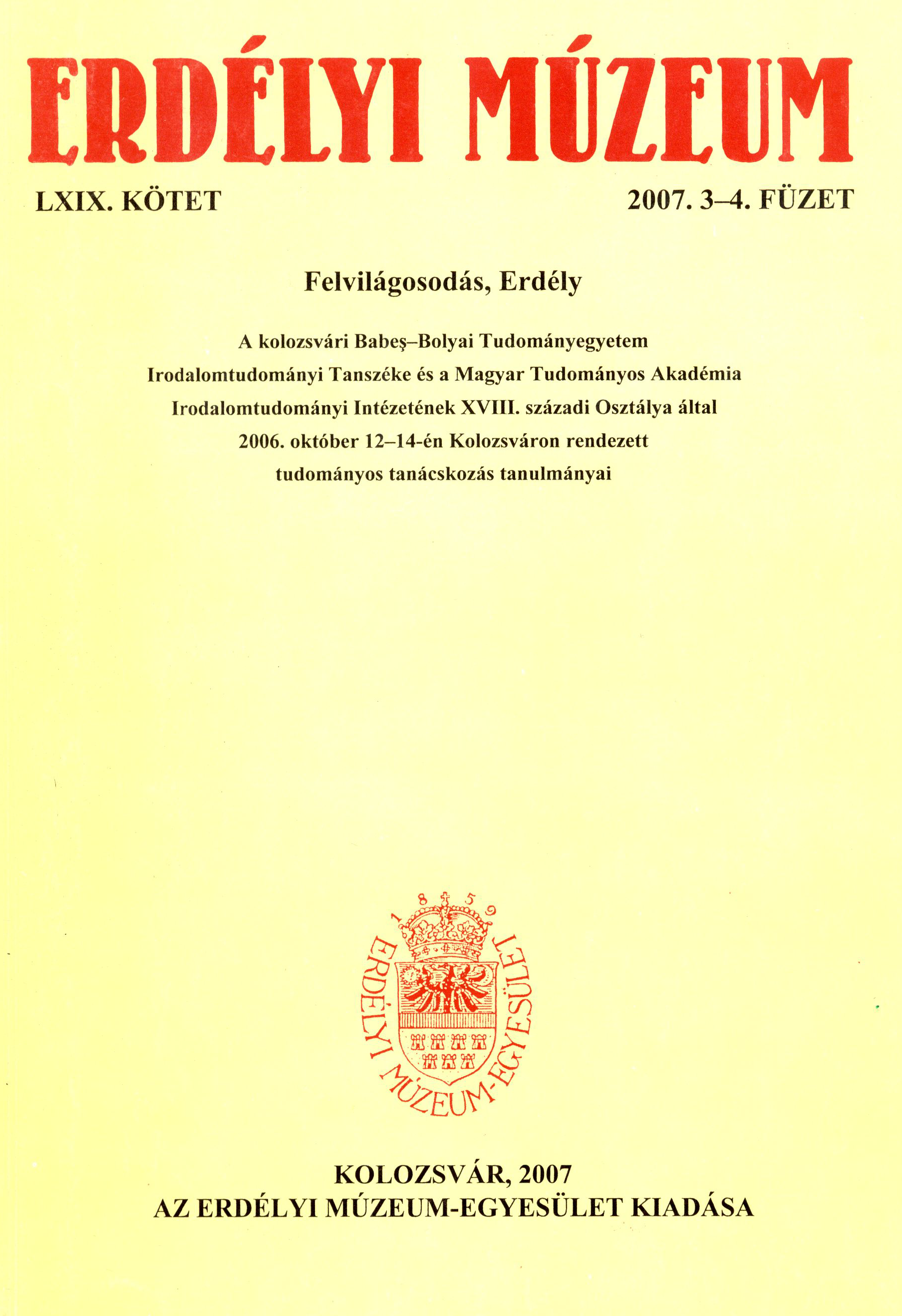Populárfilozófiai eszmék az Erdélyi Muzéumban
Neo-Humanist and Popularphilosophical Ideas in Two Programme-Essays of the Magazine Erdélyi Muzéum
Author(s): Gergely FórizsSubject(s): History of Philosophy, Hungarian Literature
Published by: Erdélyi Múzeum-Egyesület
Keywords: Erdélyi Muzéum; neo-humanism; popularphilosophy; Gábor Döbrentei; András Szabó; history of philosophy; Hungarian literature; cultural transmission; romantic-individualistic culture-theory;
Summary/Abstract: The first publication from1814 contains two extensive programme-like studies: Philosophiára vezető értekezések by András Szabó and Eredetiség ’s jutalomtétel by Gábor Döbrentei. There isn’t much correspondence between the texts: the first one is about the popular exposition of basic philosophical concepts and their emplacement in the history of philosophy; the second one discusses a theoretically supported concept of the Hungarian Literature. In my lecture I would like to call the audience’s attention to the fact, that both studies handle the same cultural concept: a dialogic-Socratic model of cultural transmission, initiated and popularized in the last three decades of the 18th century by German popularphilosophers (J. J. Engel, Chr. Garve, M. Mendelssohn). This concept treats the cultural development of mankind, influenced by the eternal lows, as a dialectical unity of tradition and renewal. In this respect philosophical systems as well as works of art may be considered stations of a cultural traditional line and no closed, distinct unities. According to this concept all products of the human intellect are the documents of an endless struggle for the highest ideas of mankind. This perception of culture differs from the classical-anorganical one as well as from the romantic-individualistic culture-theory, due to its anthropocentric-dynamic and collective orientation.
Journal: Erdélyi Múzeum
- Issue Year: LXIX/2007
- Issue No: 3-4
- Page Range: 48-60
- Page Count: 13
- Language: Hungarian

